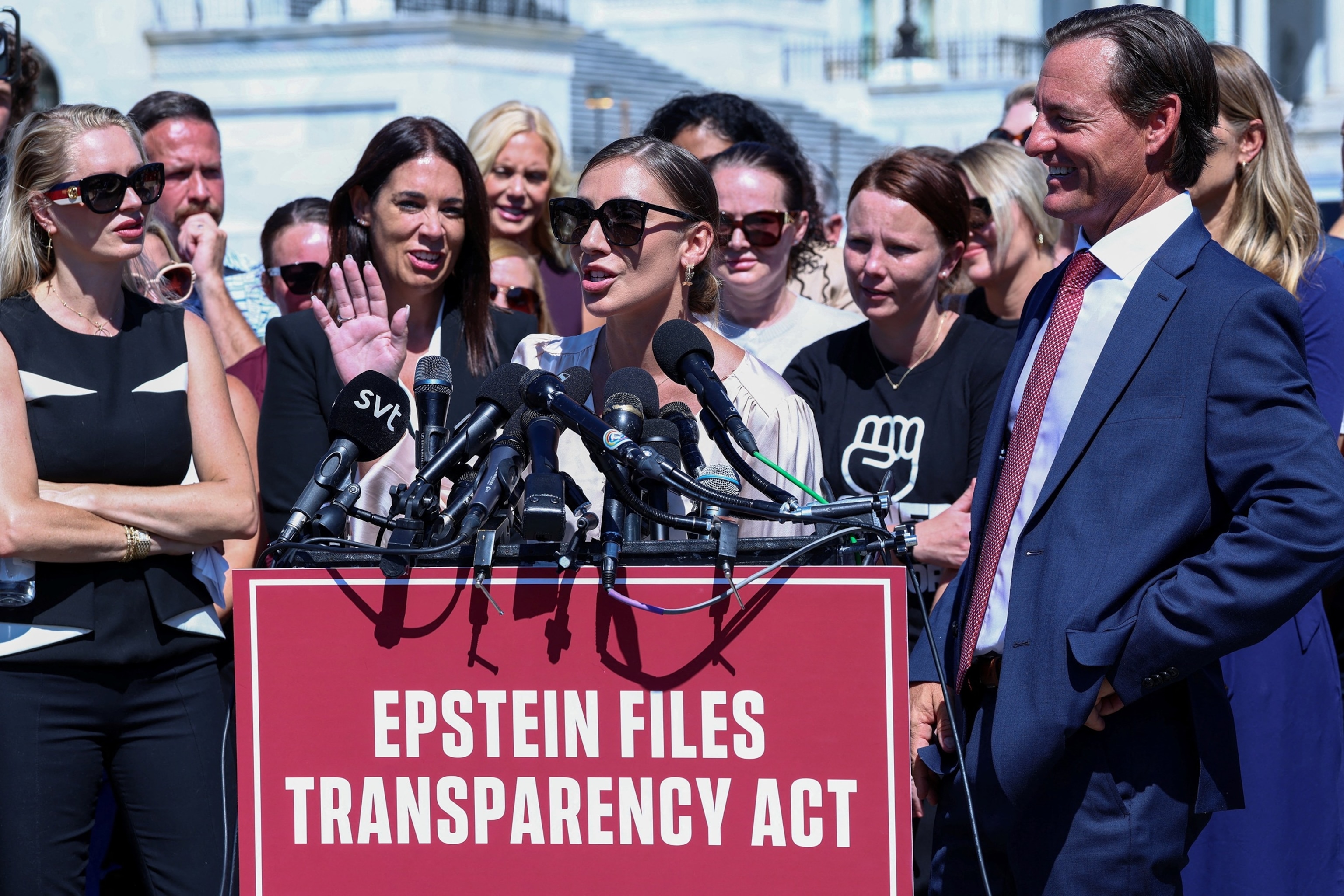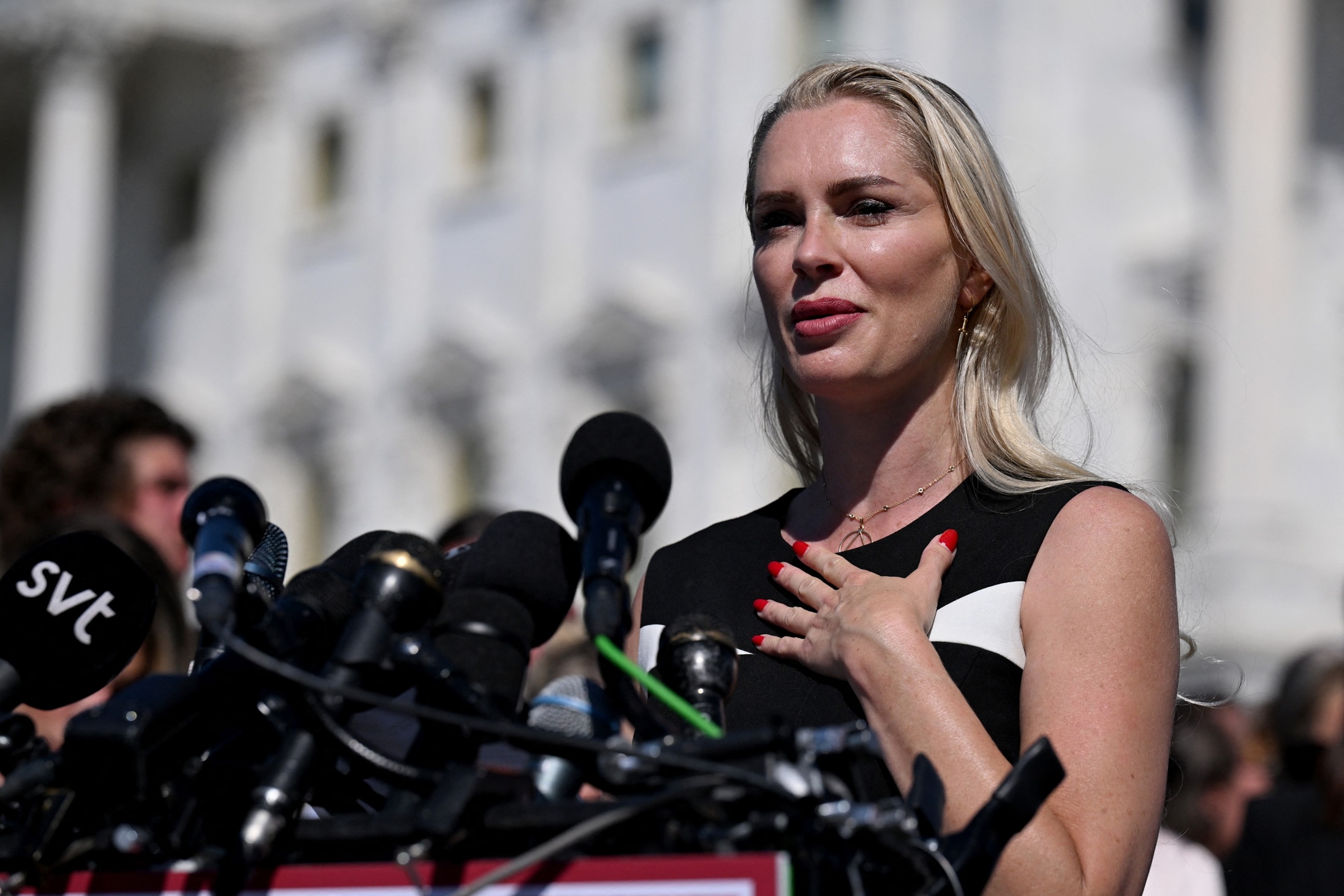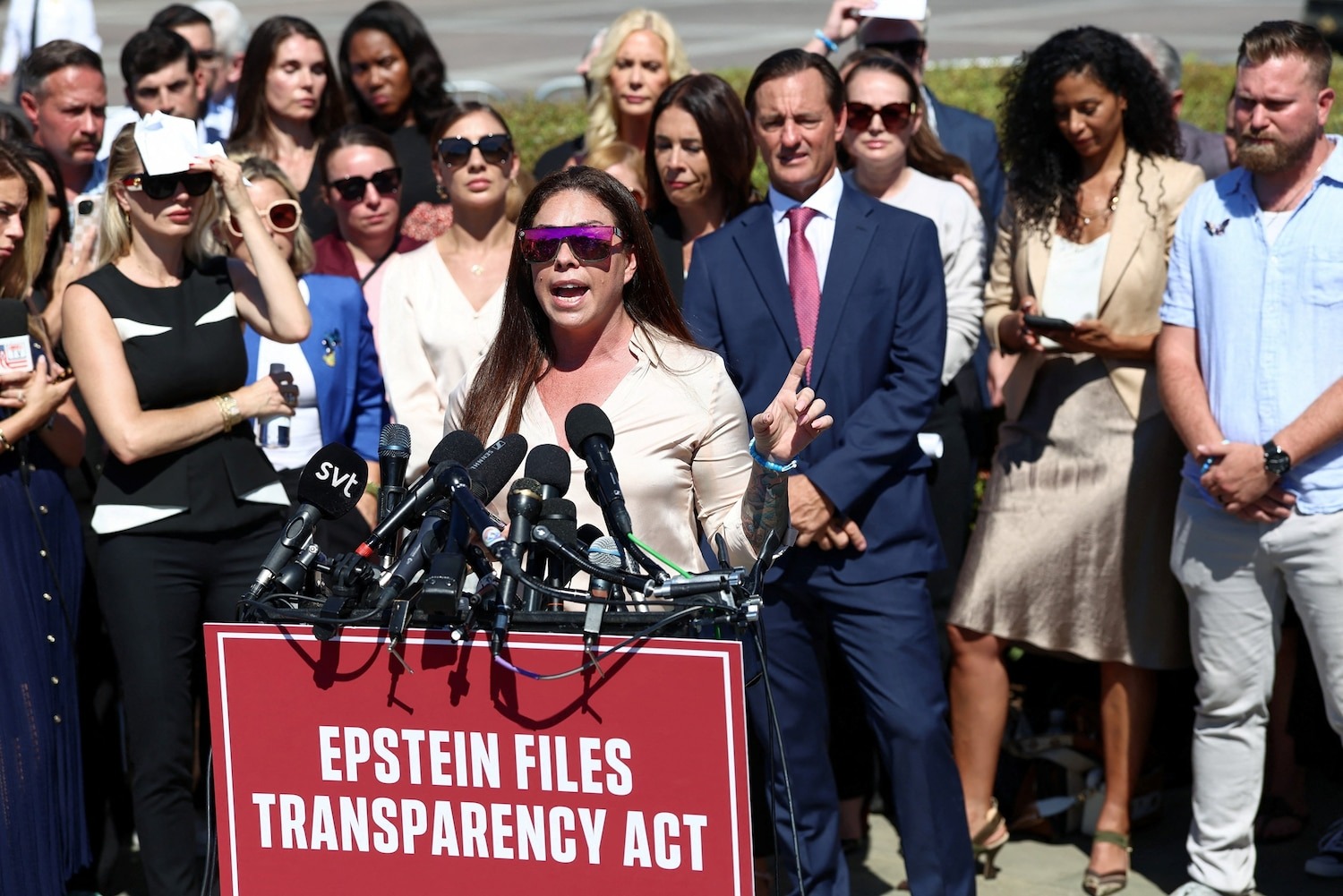Voices Demanding Change on Capitol Hill
On a September morning in Washington, a group of survivors gathered on Capitol Hill to make a plea they have been repeating for years: transparency. Standing together in front of cameras and lawmakers, they demanded that the U.S. Department of Justice release the full set of files related to Jeffrey Epstein.
Their message was clear. “This is not a hoax. This is not going away,” said Marina Lacerda, one of the women urging Congress to act. Survivors emphasized that the issue transcends political lines—it is about accountability, justice, and ensuring that future generations are protected.
For many, this press conference symbolized resilience. Survivors who had once felt powerless now stood in the nation’s capital, asking lawmakers from both parties to support the public release of documents that could shed light on how Epstein operated, who enabled him, and why accountability has been incomplete.
A Bipartisan Push in Congress

The survivors’ demand has found allies in both parties. Representative Thomas Massie, a Republican from Kentucky, and Representative Ro Khanna, a Democrat from California, have joined forces to push a discharge petition—an uncommon procedural move that would allow the House to vote on compelling the Justice Department to release the files.
So far, a handful of Republicans, including Nancy Mace, Marjorie Taylor Greene, and Lauren Boebert, have signed on. If all House Democrats support the petition, only a few more Republican votes would be needed to reach the 218 signatures required to bring the measure to the floor.
“This is not about partisanship,” Khanna said at the event. “Today we stand with survivors, we stand against big money, and we stand to protect America’s children.”
Massie added: “Think about it as if this were your sister or your daughter. Transparency is not optional—it is necessary.”
Debate Over Victim Protection vs. Public Access

Not everyone in Congress agrees with the push for immediate disclosure. House Speaker Mike Johnson has urged Republicans not to sign the discharge petition, warning that the approach does not “adequately protect the innocent victims.” Johnson and other leaders argue that the better route is through the ongoing House Oversight Committee investigation, which has already subpoenaed records from the Justice Department and Epstein’s estate.
On Tuesday evening, the Oversight Committee released tens of thousands of pages of documents. But Democrats on the panel noted that most of the material—nearly 97%—was already public. “There is no mention of any client list or anything that improves transparency or justice for victims,” said Rep. Robert Garcia, the top Democrat on the committee.
This has fueled frustration among survivors, who believe that partial disclosures and heavily redacted files do little to answer the central questions: Who protected Epstein? Who benefited from his crimes? And why was he able to act for so long without serious consequences?
Survivors as a Collective Voice
For the survivors, the moment represents more than political maneuvering—it is about reclaiming their narrative. Many spoke of how their voices had been ignored for years. Now, standing together, they want to ensure that lawmakers and the public understand that this issue is not abstract.
One survivor emphasized that she is a Republican voter and invited President Trump to meet survivors directly, stressing that the matter should not be dismissed as partisan. Others highlighted how sharing their stories has given them strength, moving from isolation to solidarity.
Their presence on Capitol Hill illustrated a broader shift: survivors are not only witnesses to the past but also advocates for systemic change. By demanding transparency, they are pushing for a future where power and privilege cannot shield wrongdoing from accountability.
What Transparency Means for Public Trust

The fight over the Epstein files touches on more than just one case. It is also about restoring faith in institutions. Survivors, lawmakers, and advocates argue that when high-profile individuals are accused of crimes yet details remain hidden, it undermines public confidence in the justice system.
Attorney Bradley Edwards, who has represented more than 200 survivors, explained that transparency is essential. “We’ve seen the documents,” he said at the press conference. “You haven’t—and when you do, you’re going to be appalled.”
The implication is clear: withholding key information leaves the public in the dark and prevents survivors from achieving full closure. Transparency, on the other hand, can serve as a corrective measure, ensuring that justice is not only done but also seen to be done.
Balancing Privacy and Accountability
One of the challenges lawmakers face is how to balance survivor privacy with public disclosure. Speaker Johnson and others argue that files must be carefully reviewed to protect the identities of individuals who were harmed. Survivors themselves, however, have said they want their experiences to be recognized and their voices amplified, not buried under redactions.
This tension between privacy and accountability is at the heart of the debate. Survivors are not calling for indiscriminate release but for a process that ensures truth while safeguarding dignity. As one survivor put it: “It’s time for us to see behind the curtain.”
The Road Ahead
As of now, the fate of the discharge petition remains uncertain. It would require bipartisan courage in a sharply divided Congress. Yet the visibility of the survivors’ advocacy is already influencing the debate. By putting faces and names to the demand for transparency, they are reframing the discussion from one about files and procedures to one about human dignity and public trust.
If the petition succeeds, it could mark a historic moment in congressional oversight, compelling the Justice Department to release documents that have long remained secret. Even if it fails, the survivors’ campaign has ensured that the issue cannot simply be dismissed or forgotten.
Conclusion
The press conference on Capitol Hill revealed both the resilience of survivors and the deep divisions in Washington over how to handle the Epstein files. Survivors, no longer silent, are demanding answers not just for themselves but for the nation. Lawmakers are now faced with a choice: whether to prioritize political caution or to embrace transparency as a pathway to justice.
In the end, the survivors’ message remains unwavering: “This is not a hoax. This is not going away.” Their call for truth and accountability echoes beyond politics, serving as a reminder that justice delayed cannot become justice denied.
Sources
